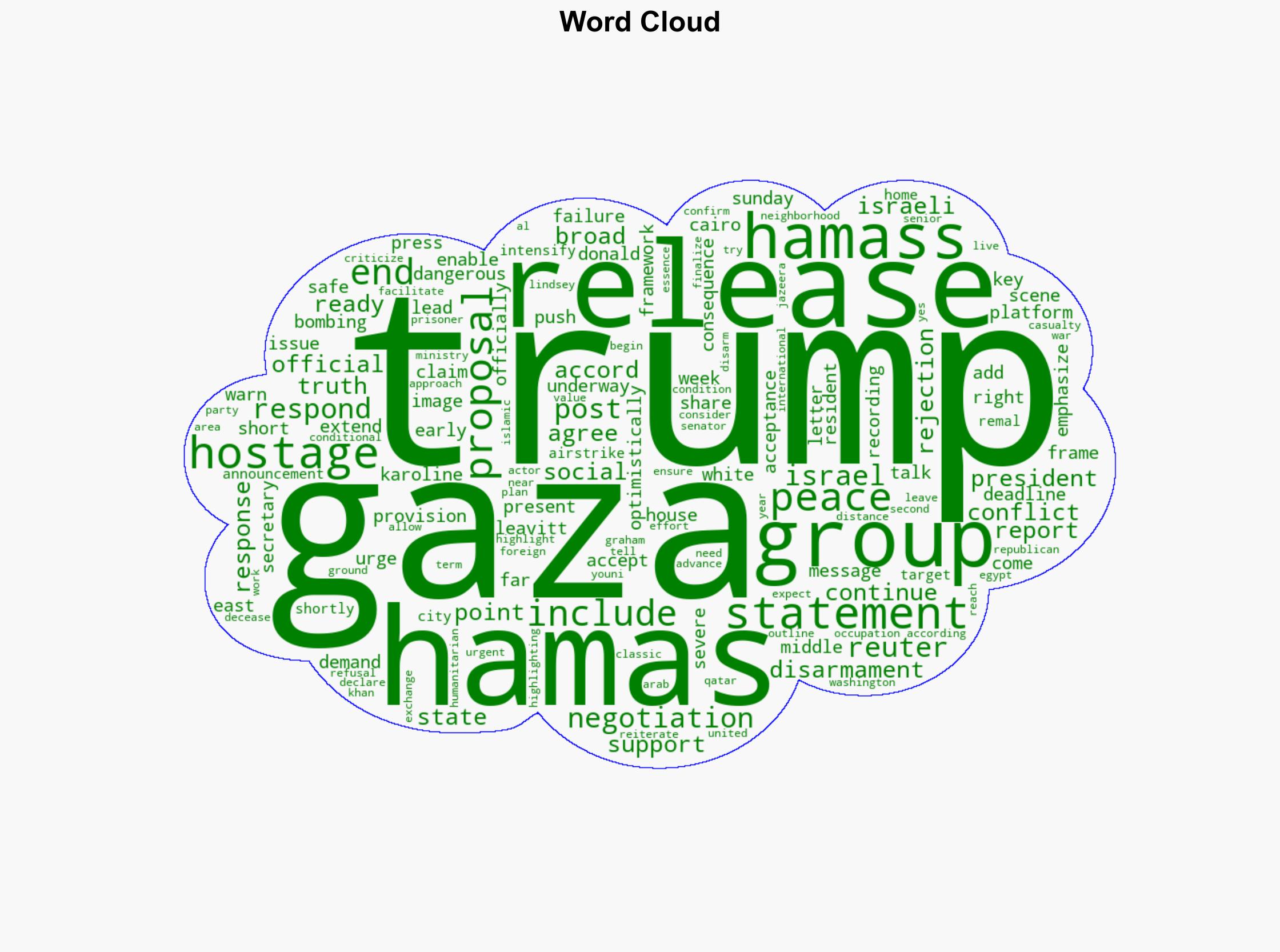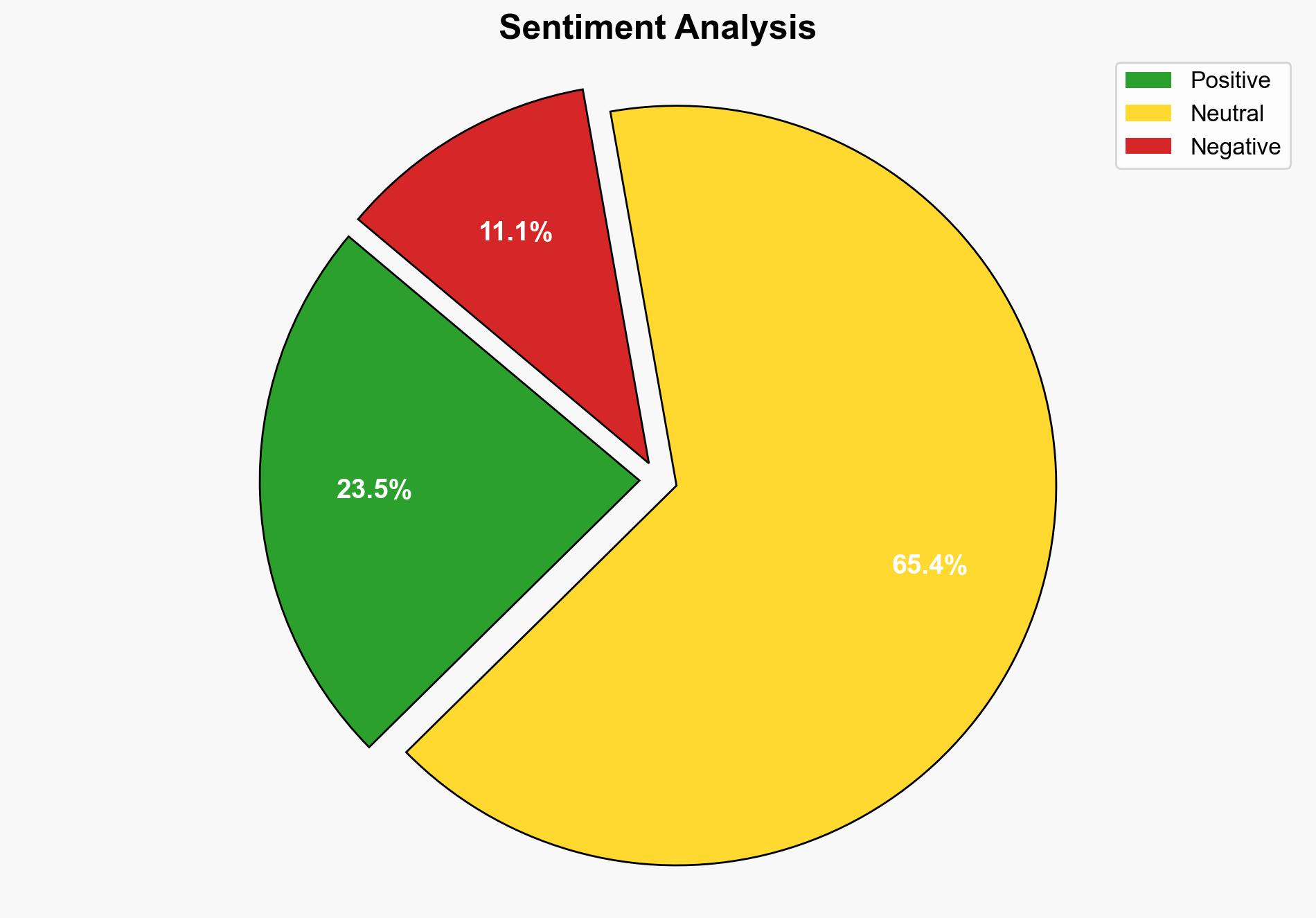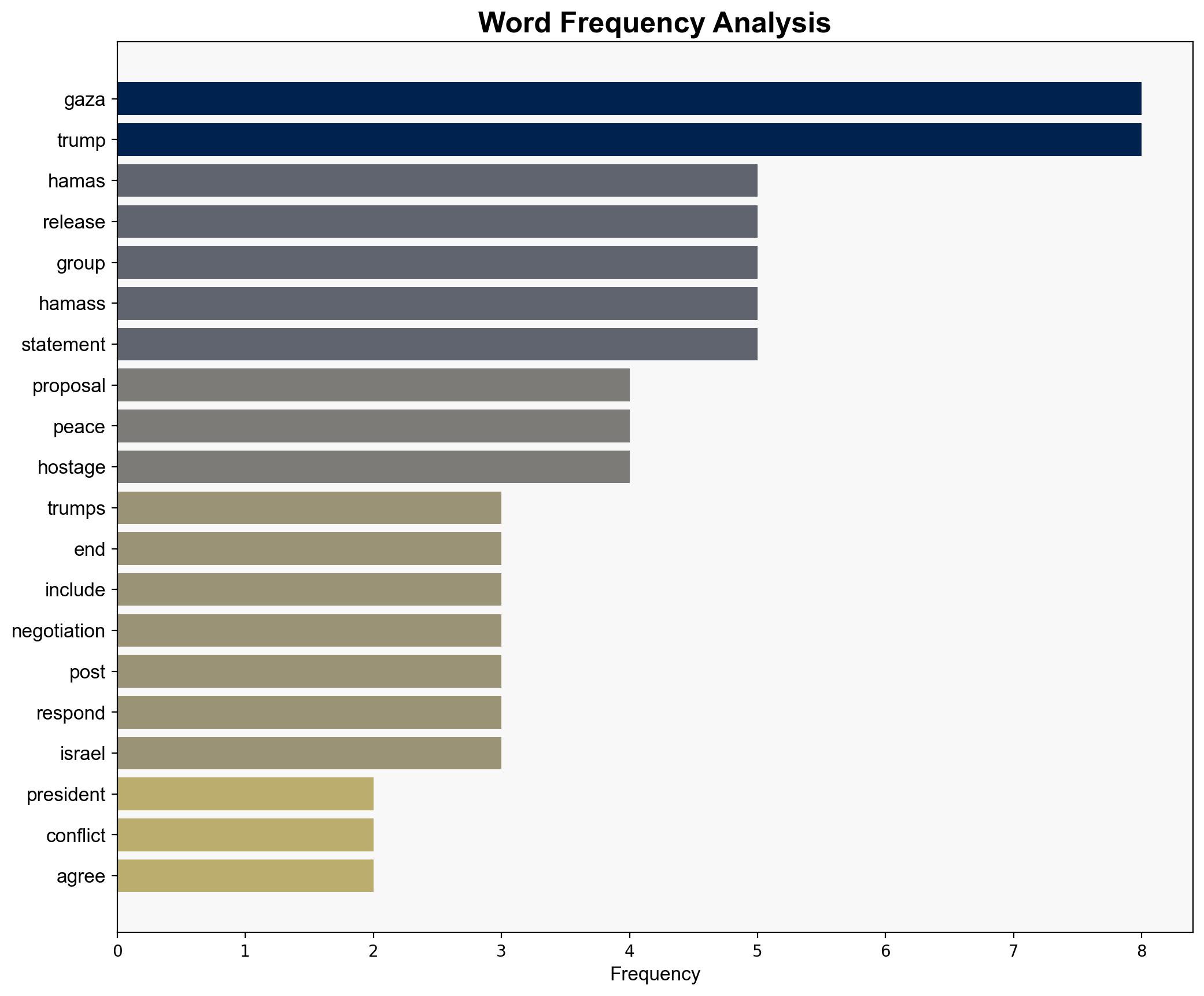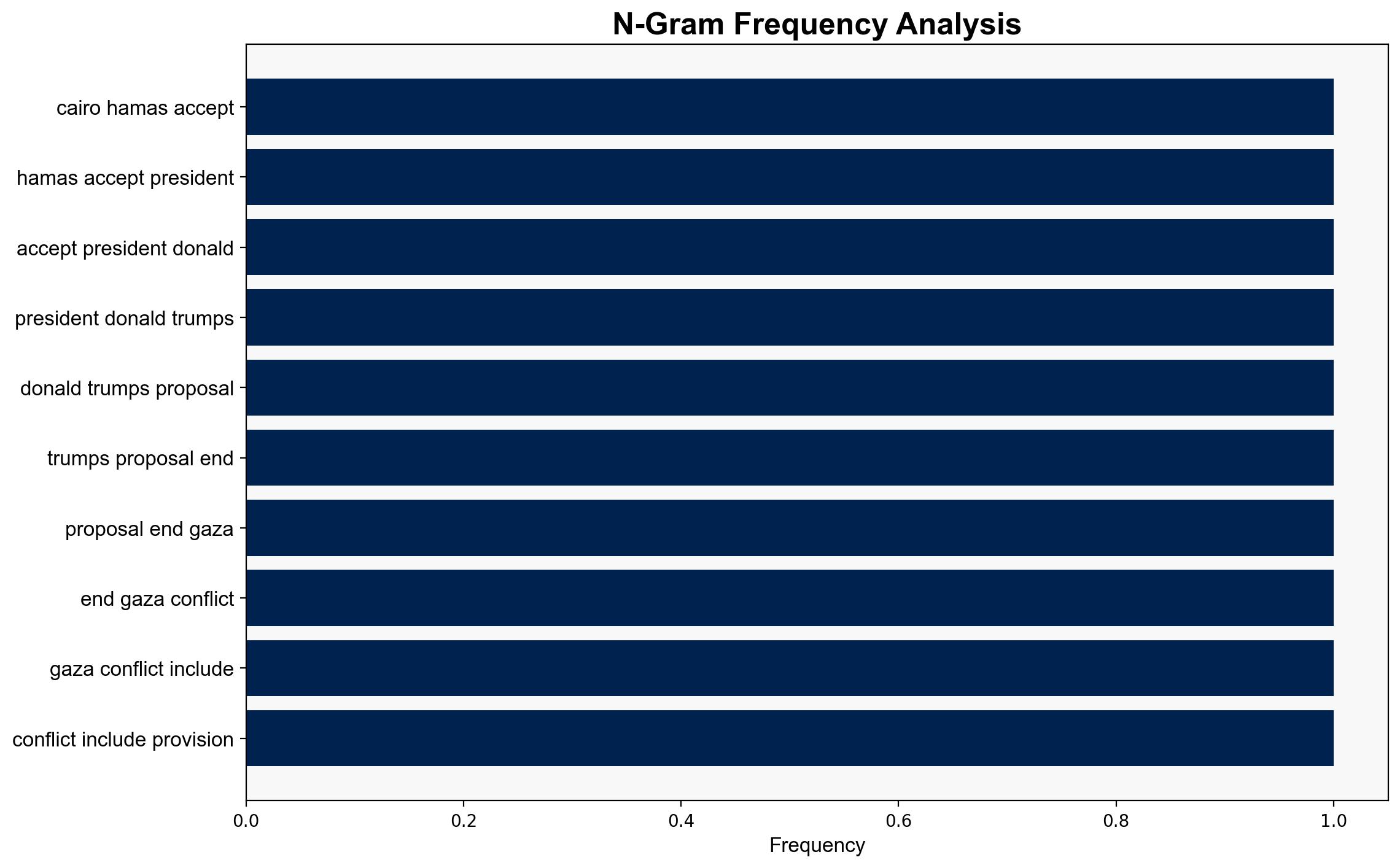Hamas signals partial acceptance of Trumps Gaza plan – Khabarhub.com
Published on: 2025-10-04
Intelligence Report: Hamas signals partial acceptance of Trump’s Gaza plan – Khabarhub.com
1. BLUF (Bottom Line Up Front)
The most supported hypothesis is that Hamas’s partial acceptance of Trump’s Gaza plan is a strategic maneuver to gain leverage in negotiations without genuine intent to disarm. Confidence level: Moderate. Recommended action: Engage in multilateral diplomacy involving regional actors to ensure any agreement includes enforceable measures and verification mechanisms.
2. Competing Hypotheses
1. **Hamas is genuinely interested in peace and willing to partially accept Trump’s plan to end the Gaza conflict.** This hypothesis suggests that Hamas sees the proposal as a viable path to peace and is willing to negotiate terms, including hostages’ release and governance changes.
2. **Hamas’s partial acceptance is a tactical move to gain international support and delay military actions without intending to fully comply with disarmament demands.** This hypothesis posits that Hamas aims to appear cooperative to reduce external pressure while maintaining its military capabilities.
3. Key Assumptions and Red Flags
– **Assumptions**: The first hypothesis assumes Hamas is willing to compromise on core issues like disarmament. The second assumes Hamas prioritizes strategic positioning over genuine peace efforts.
– **Red Flags**: The lack of explicit commitment to disarmament and conditional hostage release are potential indicators of insincerity. The intensification of Israeli airstrikes post-announcement suggests skepticism about Hamas’s intentions.
– **Blind Spots**: The internal dynamics within Hamas and the influence of external actors like Iran or Qatar on its decision-making are not fully explored.
4. Implications and Strategic Risks
– **Escalation Risks**: Failure to reach a genuine agreement could lead to increased violence, further destabilizing the region.
– **Geopolitical Dynamics**: The involvement of Egypt, Qatar, and the U.S. in negotiations could shift regional alliances and influence future peace processes.
– **Psychological Impact**: Public perception of the peace process’s legitimacy could affect local and international support for involved parties.
5. Recommendations and Outlook
- Engage regional powers in a coordinated diplomatic effort to ensure any agreement includes clear, enforceable terms.
- Develop a monitoring mechanism to verify compliance with disarmament and other conditions.
- Scenario Projections:
- **Best Case**: Successful negotiation leads to a stable ceasefire and gradual disarmament.
- **Worst Case**: Breakdown in talks results in renewed hostilities and regional instability.
- **Most Likely**: Prolonged negotiations with intermittent violence and limited progress on disarmament.
6. Key Individuals and Entities
– Donald Trump
– Lindsey Graham
– Karoline Leavitt
– Senior Hamas officials
7. Thematic Tags
national security threats, counter-terrorism, regional focus, Middle East peace process





